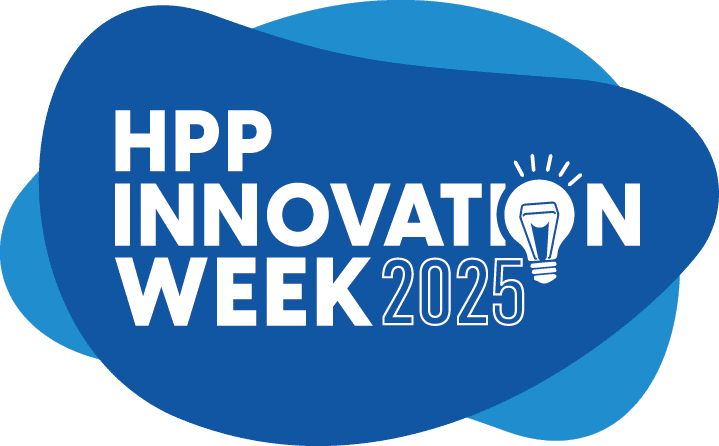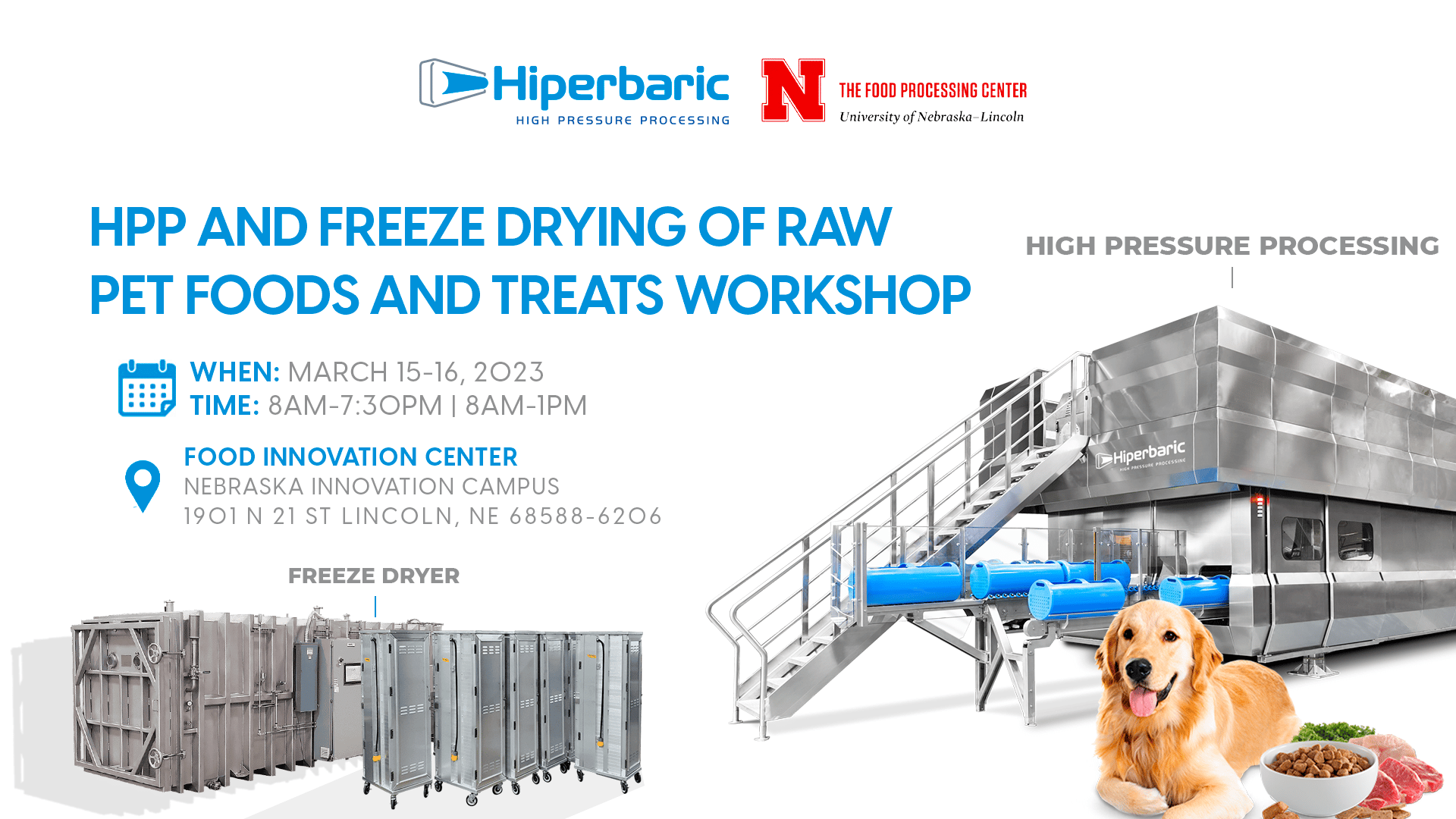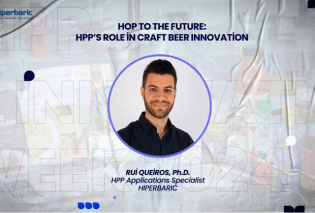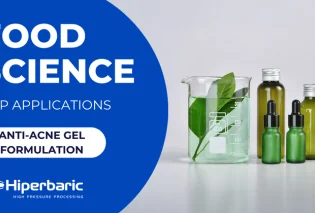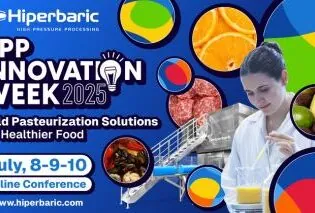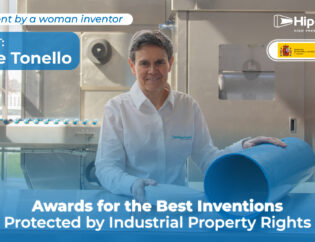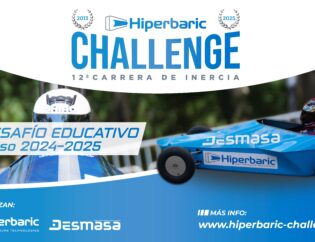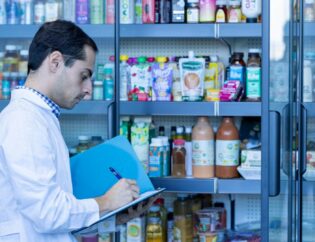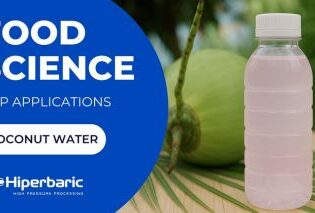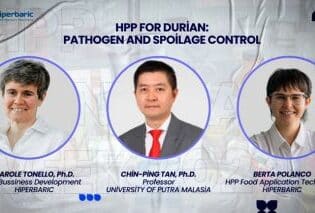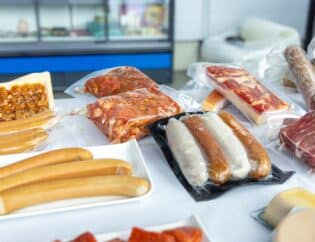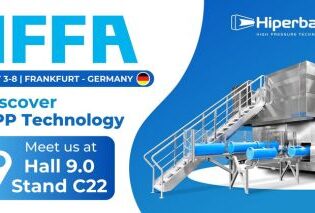
00
Hiperbaric sat down with Dr. Grace Danao, a research associate professor in the Department of Food Science and Technology at the University of Nebraska-Lincoln. During the Q&A interview, Grace discusses the services offered at the UNL Food Processing Center, HPP trends, and the upcoming HPP and Freeze Drying of Raw Pet Foods and Treats workshop.
Meet Dr. Grace Danao at the Upcoming HPP and Freeze Drying of Raw Pet Foods and Treats Workshop
Hiperbaric has partnered with the University of Nebraska-Lincoln, to host the “High Pressure Processing and Freeze Drying of Raw Pet Foods and Treats Workshop,” March 15-16, at the Nebraska Innovation Campus, Food Innovation Center.
HPP is often used in raw and freeze-dried pet food because it allows manufacturers to create safe raw pet food by controlling pathogens prevalent in raw meats and fresh produce like Salmonella and Listeria.
In this workshop, you will be able:
- To interact with industry experts and university researches
- Learn about HPP, freeze-dying, water activity, product shelf-life, food safety regulations, market trends, and best practices
- To visit HPP and freeze-dying co-manufacturing facilities near Lincoln, Nebraska
- Get a certification of completion of HPP training and 6 months of recording
Q&A with Dr. Grace Danao, Research Assistant Professor, UNL Food Processing Center
Dr. Grace Danao, tell us about your role at the University of Nebraska-Lincoln
I am a research associate professor in the Department of Food Science and Technology and a value-added food processing specialist with The Food Processing Center at UNL.
What services are offered at the UNL Food Processing Center?
Since 2018, I have led the HPP Services Laboratory of The Food Processing Center. We offer a wide range of services related to HPP – from optimization, microbial challenge, process validation, and shelf-life studies. On occasion, I provide consultation services related to other food processing techniques and assist with temperature mapping studies for process validation.
How do customers seeking HPP validation studies begin working with UNL? What is the cost?
Prospective Clients who want our assistance and testing services may reach out to me directly or to the lab by email ([email protected]). We often start with a discussion about the product, process, and the Client’s goals with HPP, meaning, are they planning to use HPP for lethality or a “kill step”, as a post-lethality treatment, and/or to extend the shelf-life of their product. Depending on the Client’s responses, we may do some preliminary testing or jump right into a statistically designed study to generate the data they are seeking to support their HACCP or Food Safety Plans. It’s hard to provide a cost estimate for testing since we often customize the design of the study according to the needs of the Client. But, generally, former Clients find our prices to be competitive with other laboratories offering HPP validation and shelf-life studies.
What trends have you seen recently around HPP technology?
Since we started in 2018, we have had a pretty steady request for the microbial challenge of process validation studies involving fresh juices or beverages, ready-to-eat meats, and raw pet food formulas. More recently, we’ve had a lot of requests to test potential synergistic effects between specific antimicrobial agents and HPP.
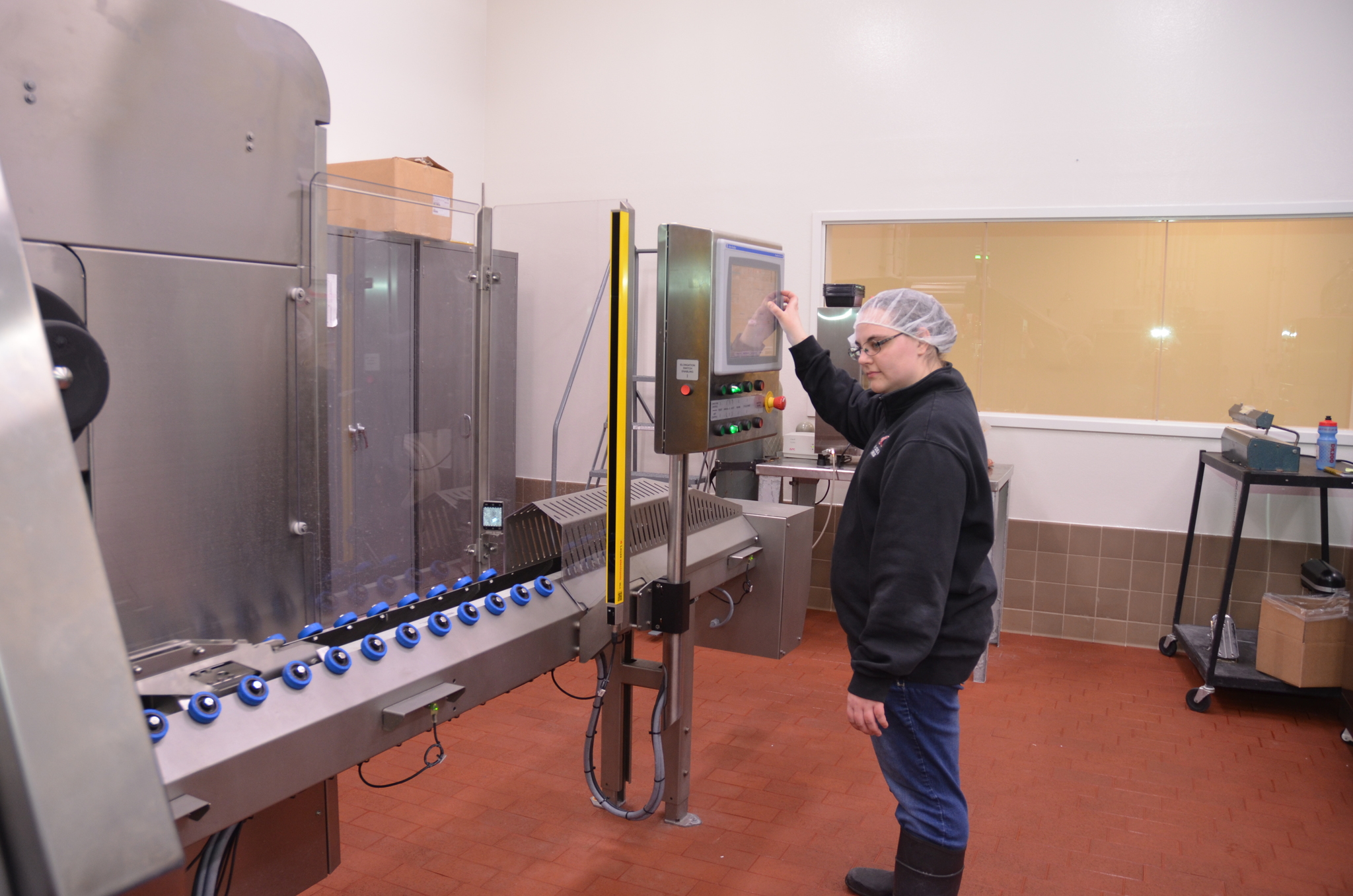
What work has UNL conducted around raw pet food?
Certainly, we’ve conducted process validation studies involving raw pet foods. In my research lab, my graduate students and I have explored the use of HPP for meat thawing or tempering applications as well as looked at the synergistic effects between specific antimicrobial agents (e.g., a weak organic acid or a commercially available fermentate) that can be applied to raw meat ingredients of pet foods or a raw pet food formula and HPP.
How does HPP help develop high-quality, safe raw pet food?
Most raw pet food manufacturers try to retain the “raw-like” attributes of their food products, so a nonthermal processing technology, like HPP, is needed to pasteurize the food and meet the U.S. regulatory requirements for all animal food.
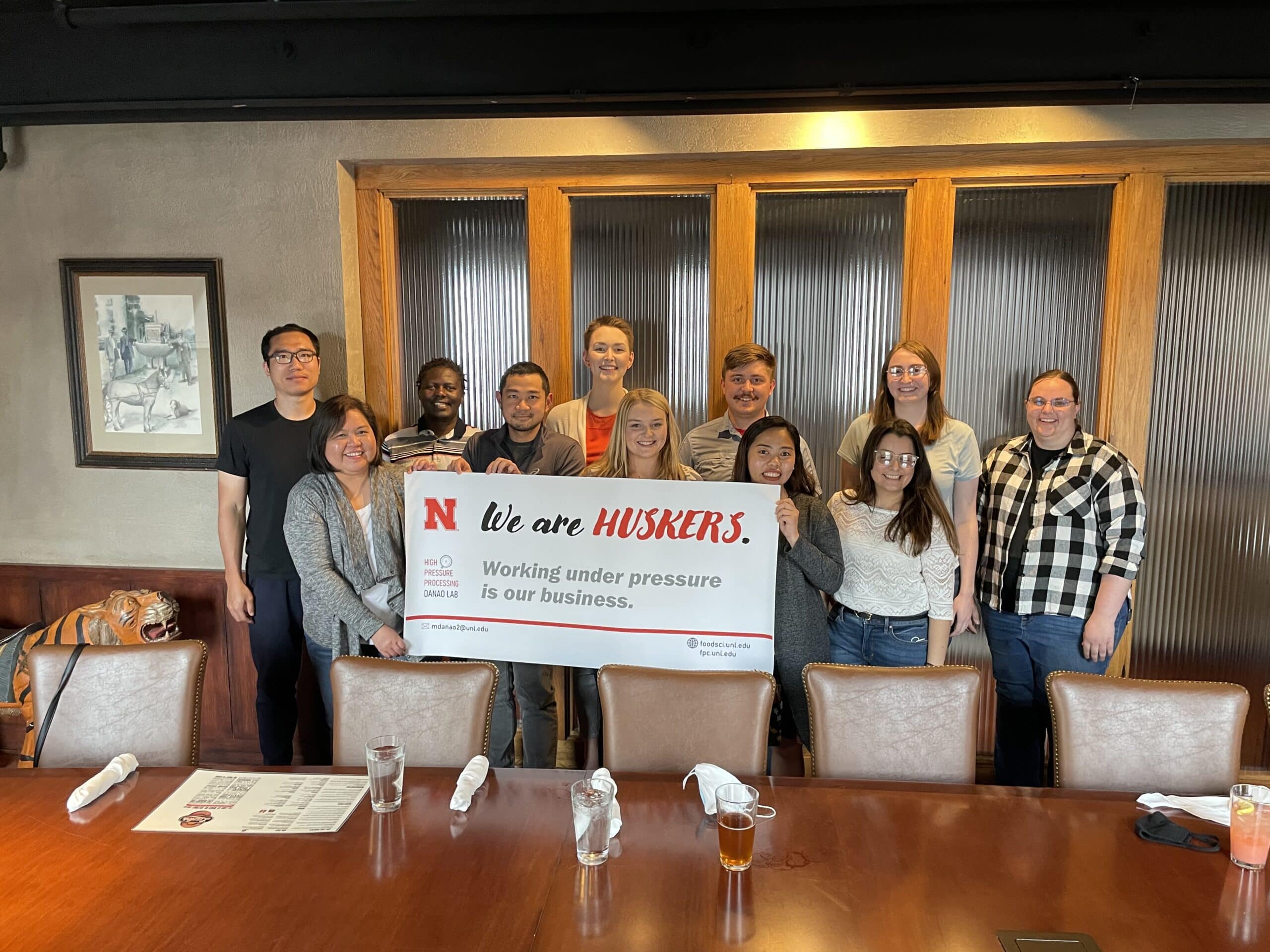
Where do you see the raw pet food category headed?
The raw pet food category is pretty diverse. On one end, you have manufacturers making products that are made mostly of a ground mixture of muscle and organ meats which may not necessarily be a complete and balanced diet – to the other end of the spectrum, where the products are highly formulated, with lots of ingredients, and undergo multiple processing steps like HPP and freeze drying. I think, over time, we will find more demand for complete and balanced diets that are pasteurized. Dehydrating a raw pet food formula makes the product shelf-stable, have a long shelf-life, and is easier to mix in other dry pet foods like kibble if desired or needed.
What can attendees expect at the upcoming HPP and Freeze Drying of Raw Pet Foods and Treats workshop?
Attendees can expect to learn the basic principles of high pressure processing and freeze drying technologies, as well as hear best practices of utilizing these two technologies from university and industry experts on these topics. They will also learn about how to utilize their water activity measurements in determining the potential shelf-life of the products and considerations that should be made in selecting packaging material. For those who are able to join the field trips, they will see raw pet food and HPP co-manufacturing facilities. Finally, at the conclusion of the workshop, all participants will earn a digital badge from the University of Nebraska-Lincoln that they can share on their LinkedIn profiles, signifying the unique skills and training they attained.
What will be the main topics and takeaways at the HPP and Freeze Drying of Raw Pet Foods and Treats workshop?
We will cover topics such as trends in the raw pet food category, HPP and freeze drying basics and best practices, microbial food safety of raw pet foods and treats, water activity and product shelf-life, and what to know when working with co-manufacturers. Learning these topics is key to making raw pet foods and treats responsibly. Beyond these topics, the workshop provides attendees the chance to network with other professionals in the pet food industry.

